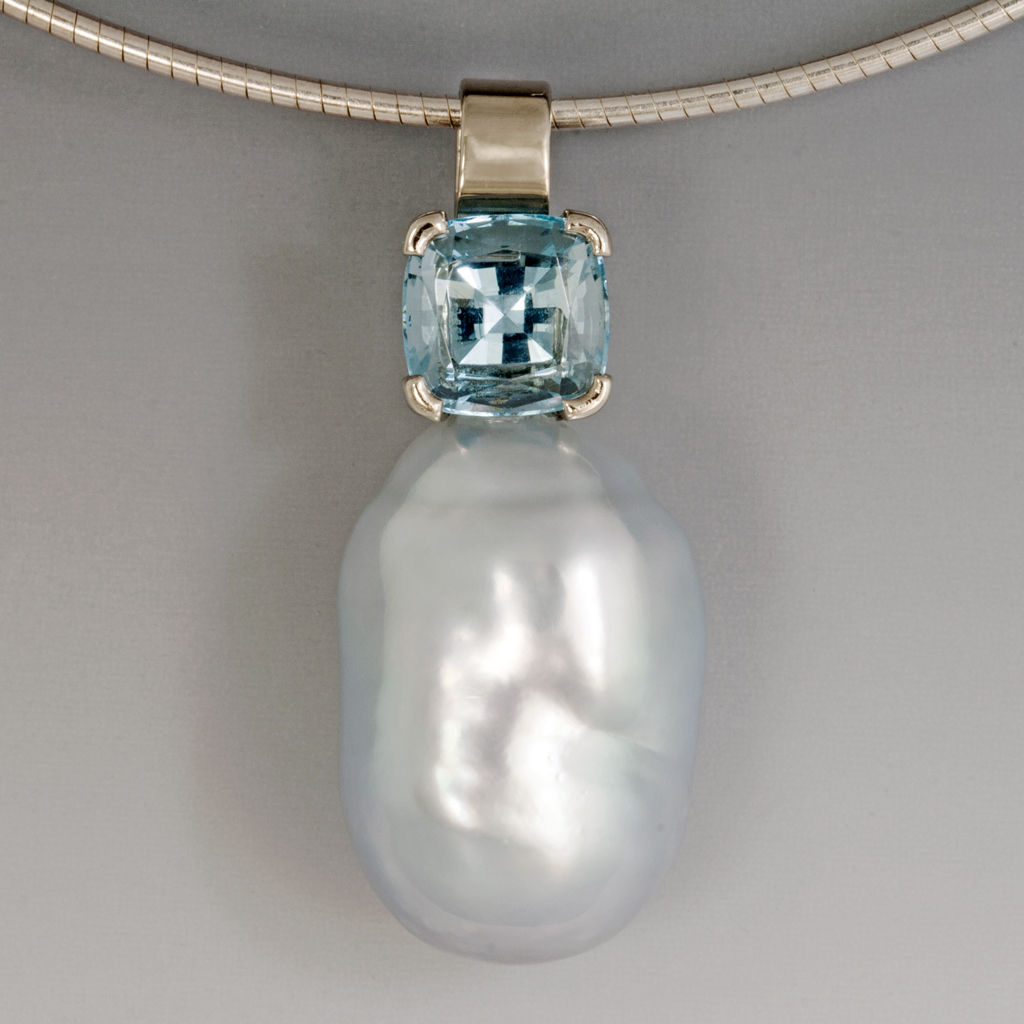
A deep blue cushion shaped aquamarine tops an irridescent blue Australian South Sea Pearl. View this lovely pendant here by clicking on the image.

A deep blue cushion shaped aquamarine tops an irridescent blue Australian South Sea Pearl. View this lovely pendant here by clicking on the image.
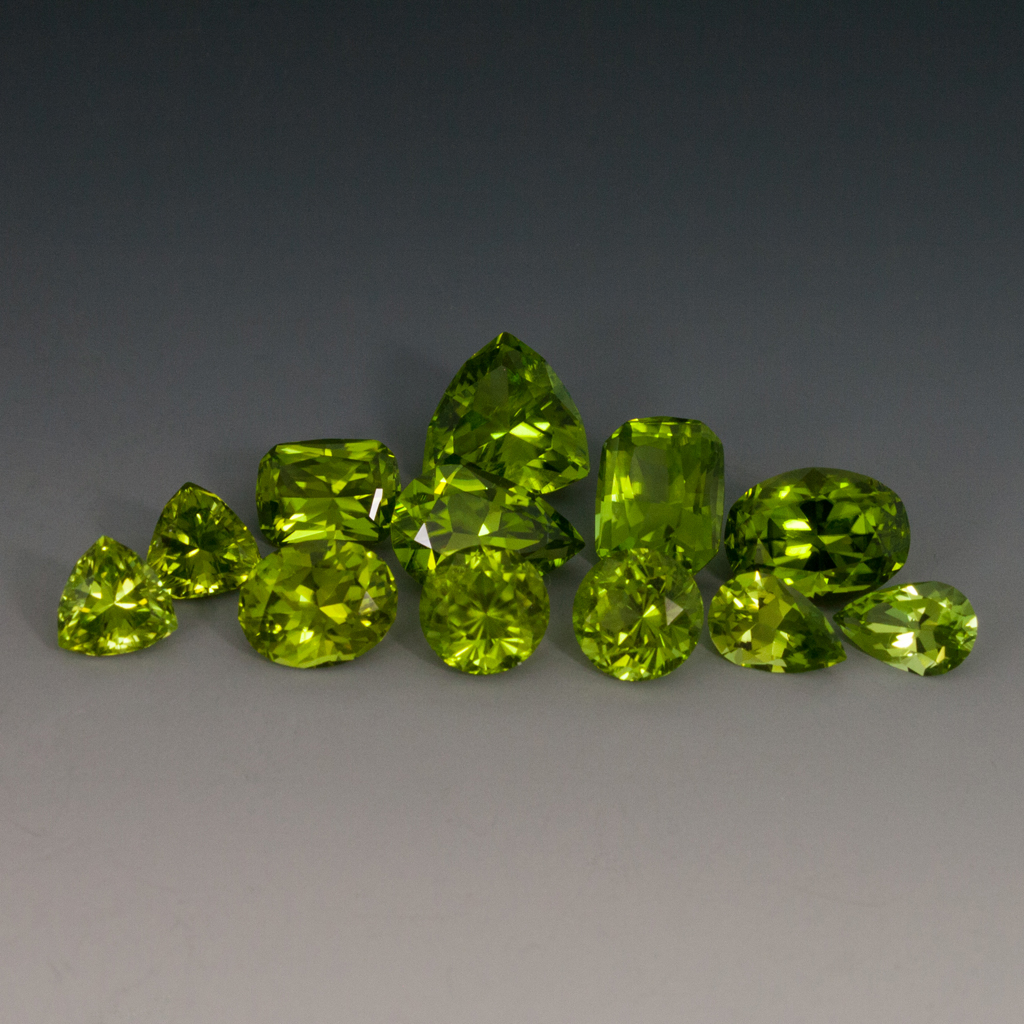
Most gems are colored by impurities in the crystal. Peridot’s yellow-green is due to the presence of iron. Higher quality stones have an intense color. The best peridot is pure grass green. Most of the stones with the finest color come from Myanmar and Pakistan. Peridot has extremely high double refraction: when you look closely through the gem, you can see two of each pavilion facets.
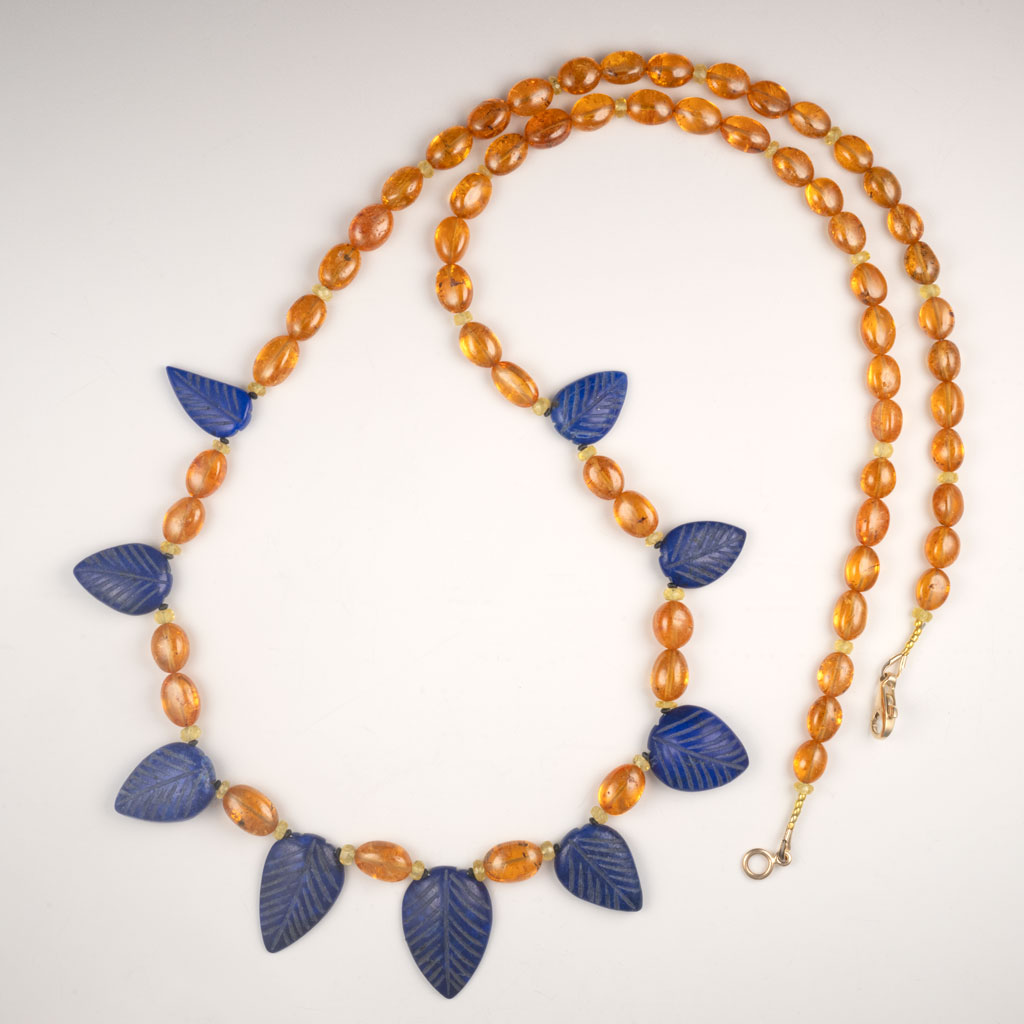
Also known as “Spessartine” this lively garnet is usually orange to reddish-brown and is somewhat rare. Most spessartites especially orange ones, have eye-visible inclusions.
Manganese is the element in Spessartiet that produces the orange color. Spessartite has been found in Brazil, Burma, Madagascar, Mozambique, Namibia, Nigeria, Sri Lanka, and the USA (San Diego County, CA). The most important sources today are Nigeria and northeast Namibia. Spessartites are not enhanced by any method. Hardness is 7 – 7.5 on the Mohs scale.
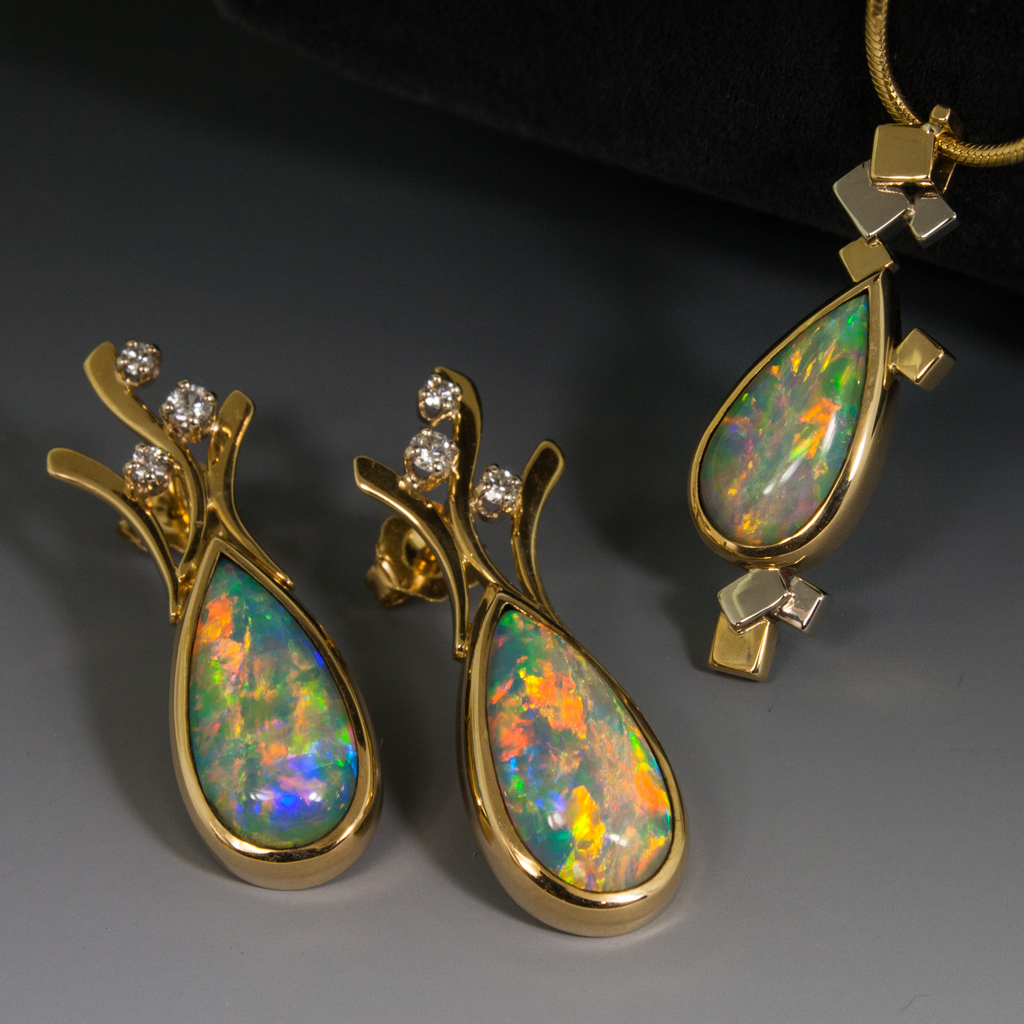
Oh, the spectral delight that is Opal, the “Eye Stone.” Like lightning in a rainbow, it flashes its brilliance with even the slightest movement and claims notice by all who witness its phenomenal “fire.”
These Australian Crystal Opal pendant and earrings with diamonds are a perfect example!
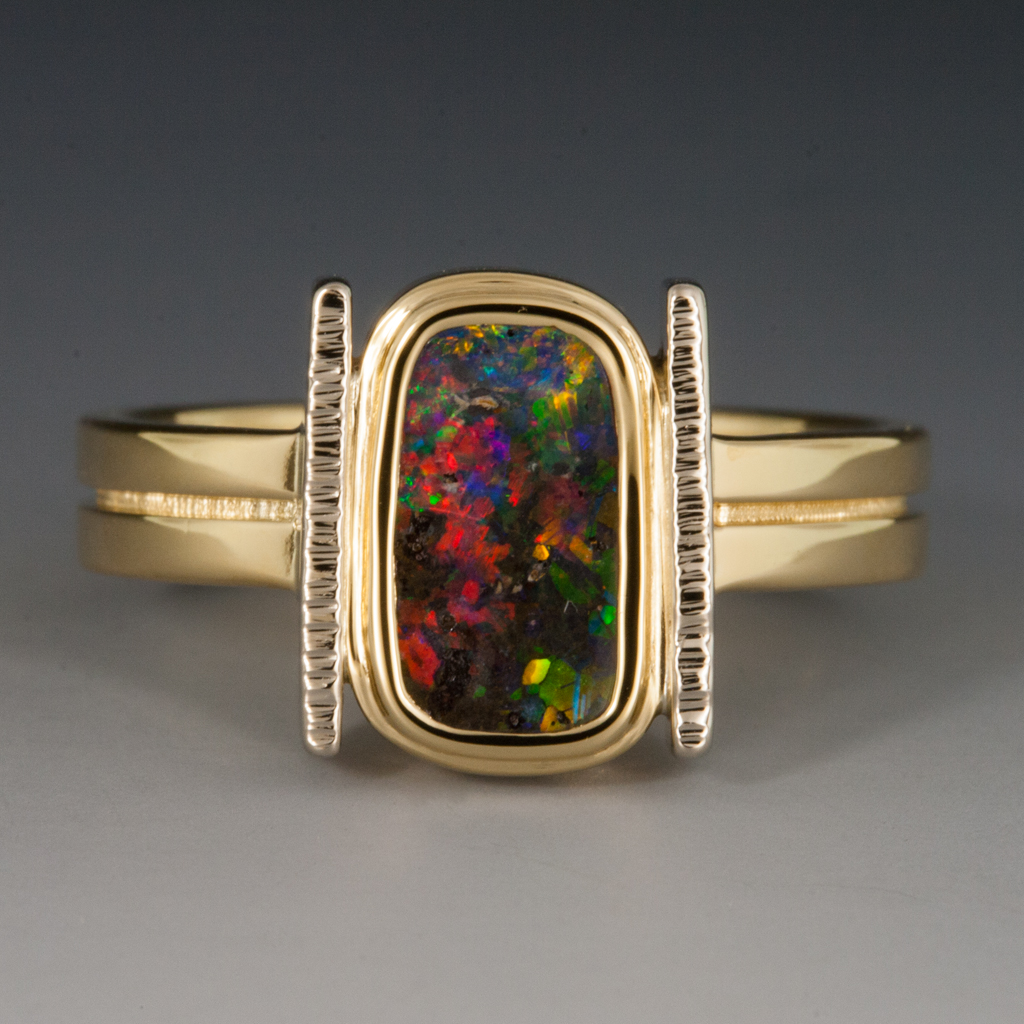
Colorful opal, appropriate for fall. The shifting play of kaleidoscopic colors is unlike any other gem.
Each opal is unique in pattern, shape, color, and type, making for one of a kind jewelry. Although it is only 5.5 – 6 on the Mohs Hardness scale, opal makes a beautiful jewelry gemstone.
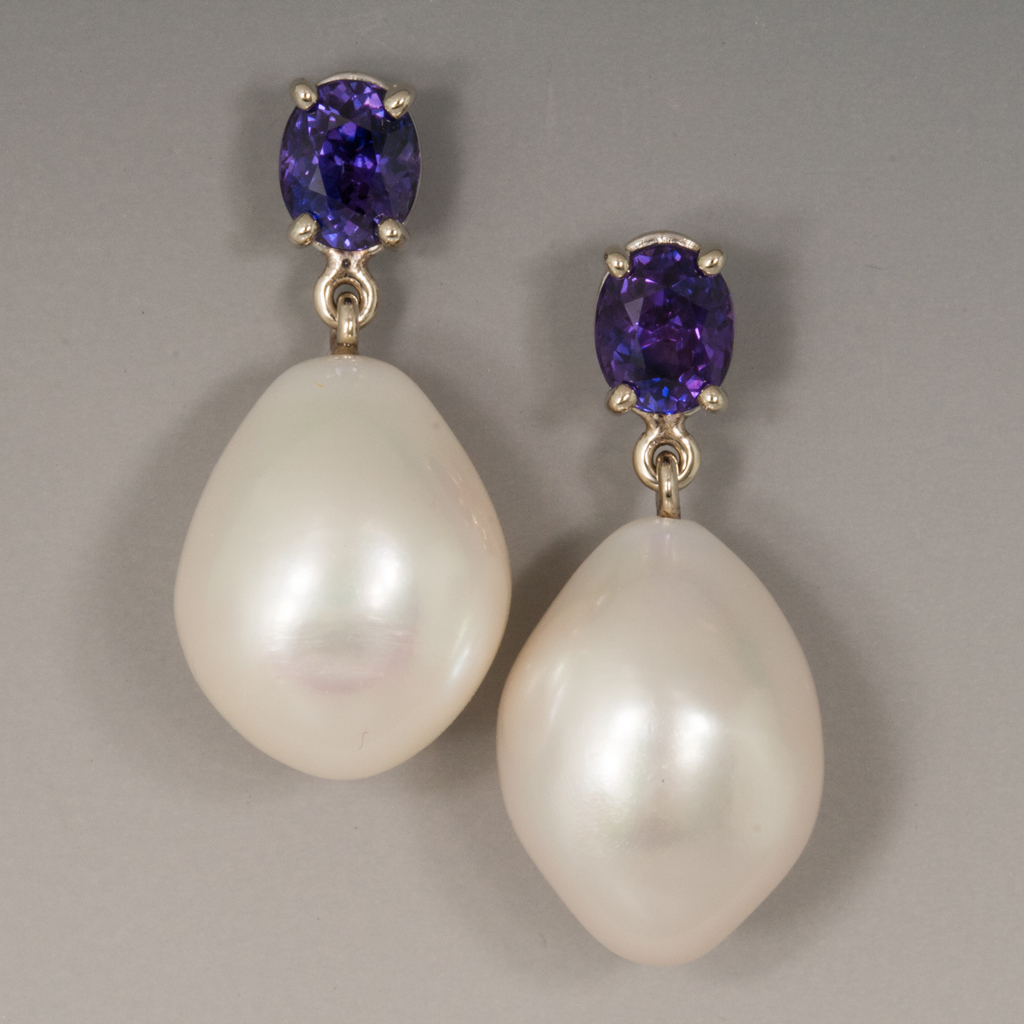
Sapphire is one of the two gem-varieties of corundum, the other being ruby. Although blue is the best-known sapphire color, they occur in many colors, including purple as shown here in these earrings. A pinkish orange variety of sapphire is called padparadscha. Sapphire, being 9 on the Moh’s hardness scale is a perfect gem for engagement rings and other wedding jewelry.
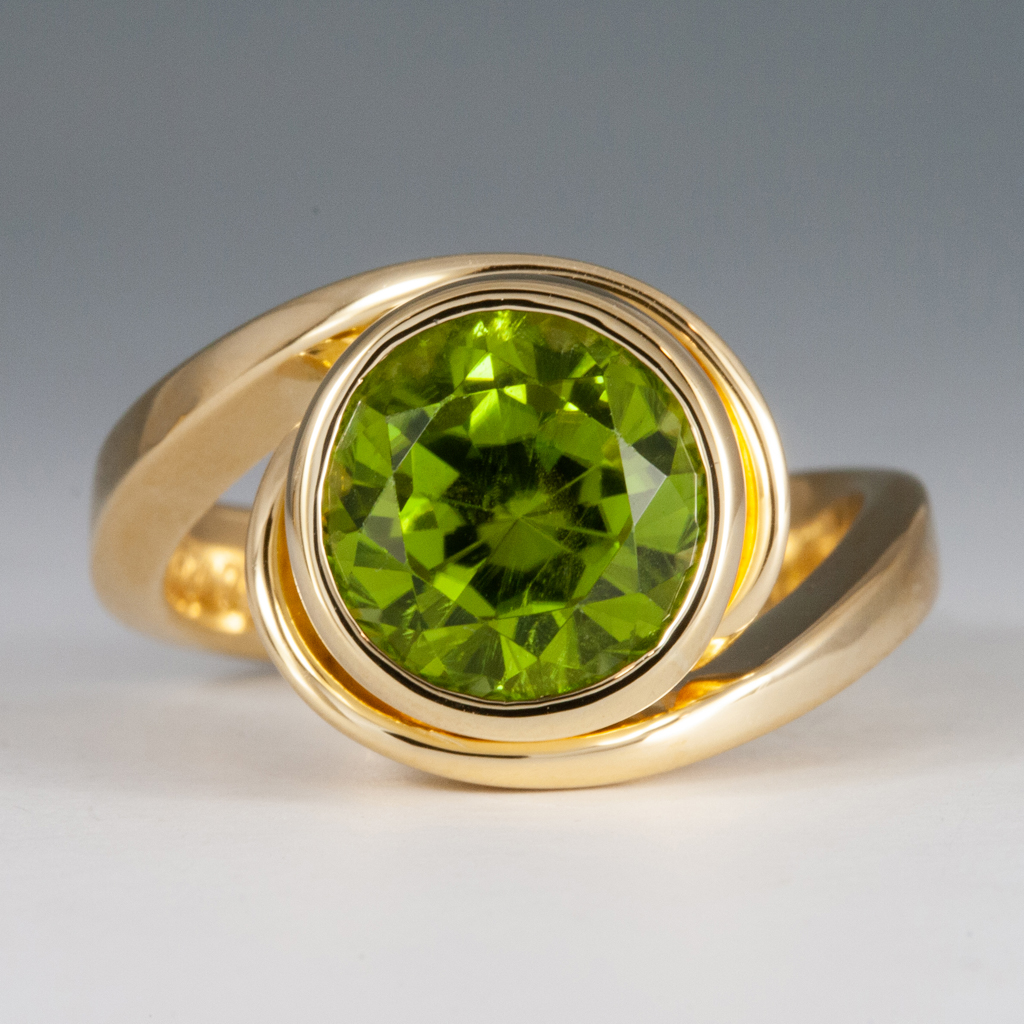
Peridot is 6.5 – 7 on the Mohs Hardness scale, making it a good jewelry gemstone.
Peridot, in shades of olive, is one of the few gemstones that forms in only one color. Beautifully faceted, it evokes the lateness of summer and the onset of fall, as leaves morph from green to gold and hang like jewels in the sunlight. It is a crystal of warmth and well-being, mentally stimulating and physically regenerating. It carries the gift of inner radiance, sharpening the mind and opening it to new levels of awareness and growth, helping one to recognize and realize one’s destiny and spiritual purpose.
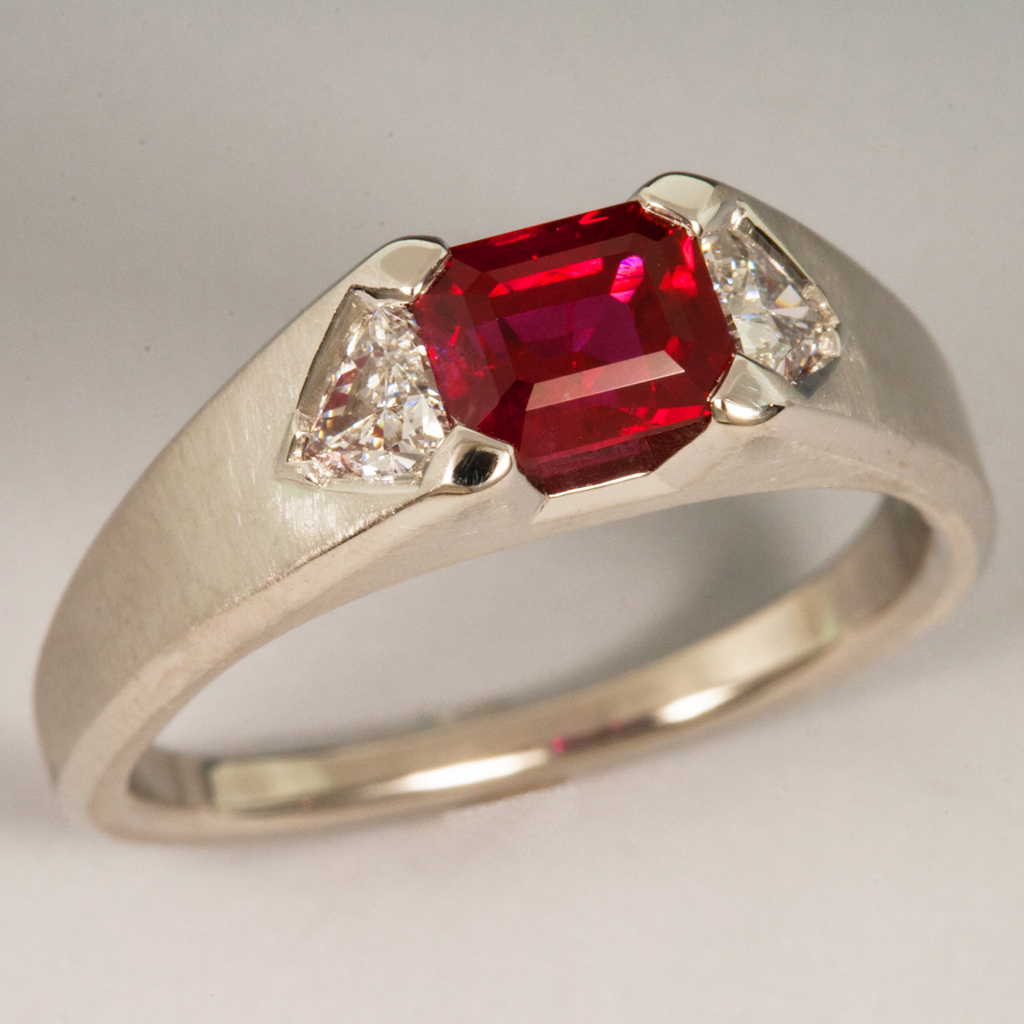
Ruby, Emerald Cut, 5.66 x 4.57mm, 1.02ct. (H)
Diamonds, Trillion Cut, 4.0mm, .25ctw EF/VS matched pair.
Carved by hand and cast in platinum to perfectly accommodate the gems.
Engraving all around the gems makes them sing!
Trapezoidal-shape for an ergonomic fit and feel.
Satin finished platinum with highly polished beveled edges.
Exquisitely handcrafted.
Size 6.
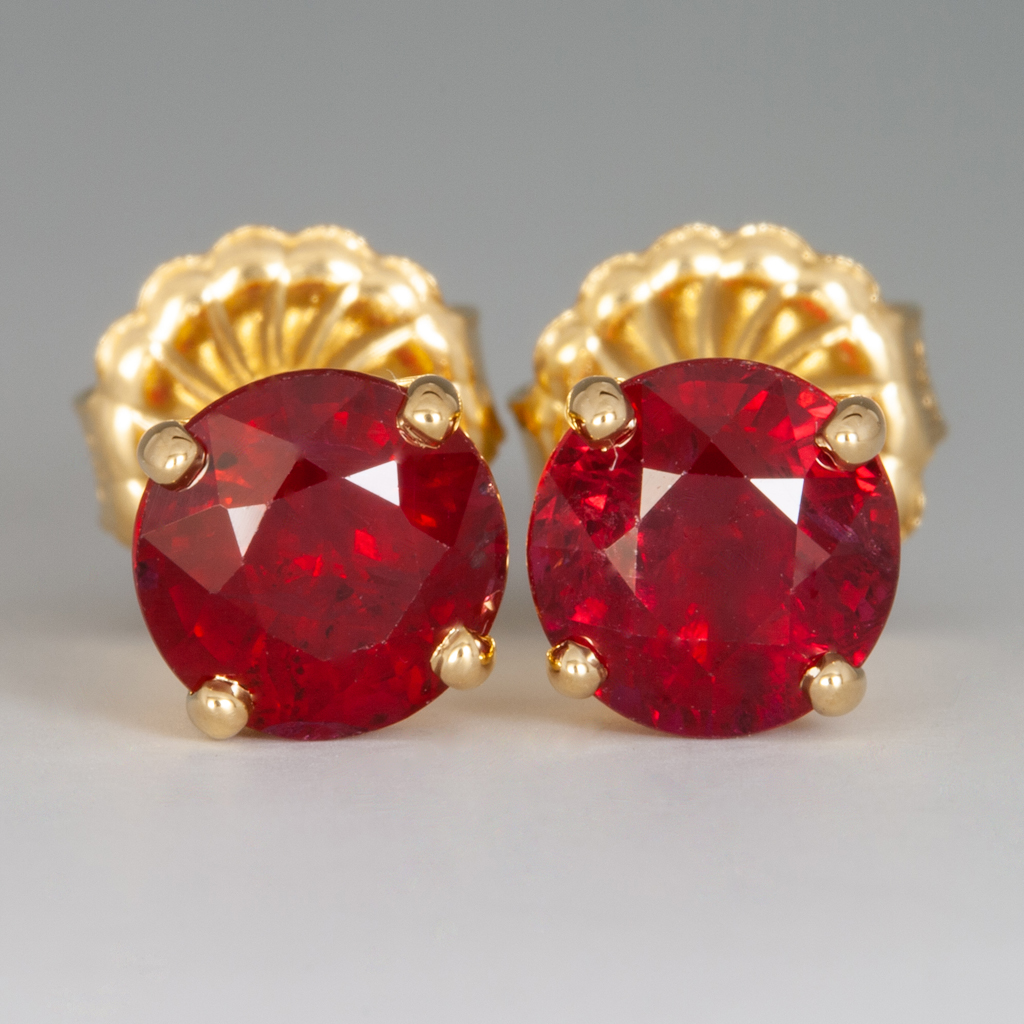
Rubies are given as a symbol of success, devotion and integrity. According to ancient lore, a ruby is capable of reconciling lovers’ quarrels. Rubies were thought to ward off misfortune and ill-health.
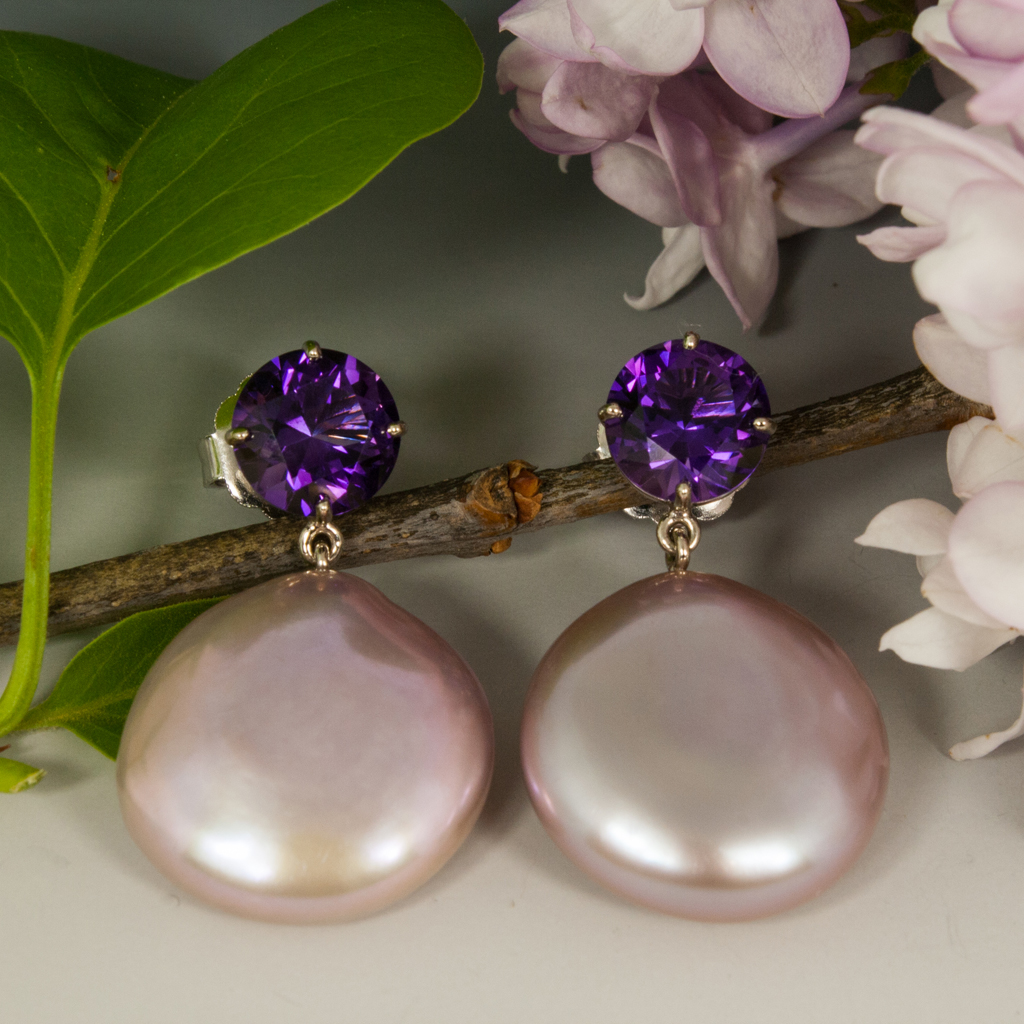
Pearl – a hard, glistening object produced within the soft tissue (the mantle) of a living shelled mollusk. Its hardness is only 2.5 – 4.5 on the Moh’s scale so we don’t recommend it for an everyday ring, but earrings, pendants, necklaces, and bracelets are just wonderful to wear.
Pearls come in a wide variety of shapes, sizes, and colors. They are irridescent and can be white, pink, silver, cream, brown, green, blue, black, yellow, orange, gold, and purple.
Freshwater pearls form in various species of freshwater mussels, which live in lakes, rivers, ponds, and other bodies of fresh water.
Saltwater pearls grow within pearl oysters, which live in oceans. Saltwater pearl oysters are usually cultivated in protected lagoons or volcanic atolls. These are called Akoya pearls.
Tahitian pearl (black pearl) is an organic gem formed from the black lip oyster, Pinctada margartifera. They are primarily cultivated around the islands of French Polynesia, around Tahiti.
South Sea Pearls are produced in the Philippines, Australia, and Indonesia. It’s the largest of all pearls and ranges in size from 9 – 20 mm. They can be cream, white, or golden, and they are harvested from the oyster pinktada maxima.